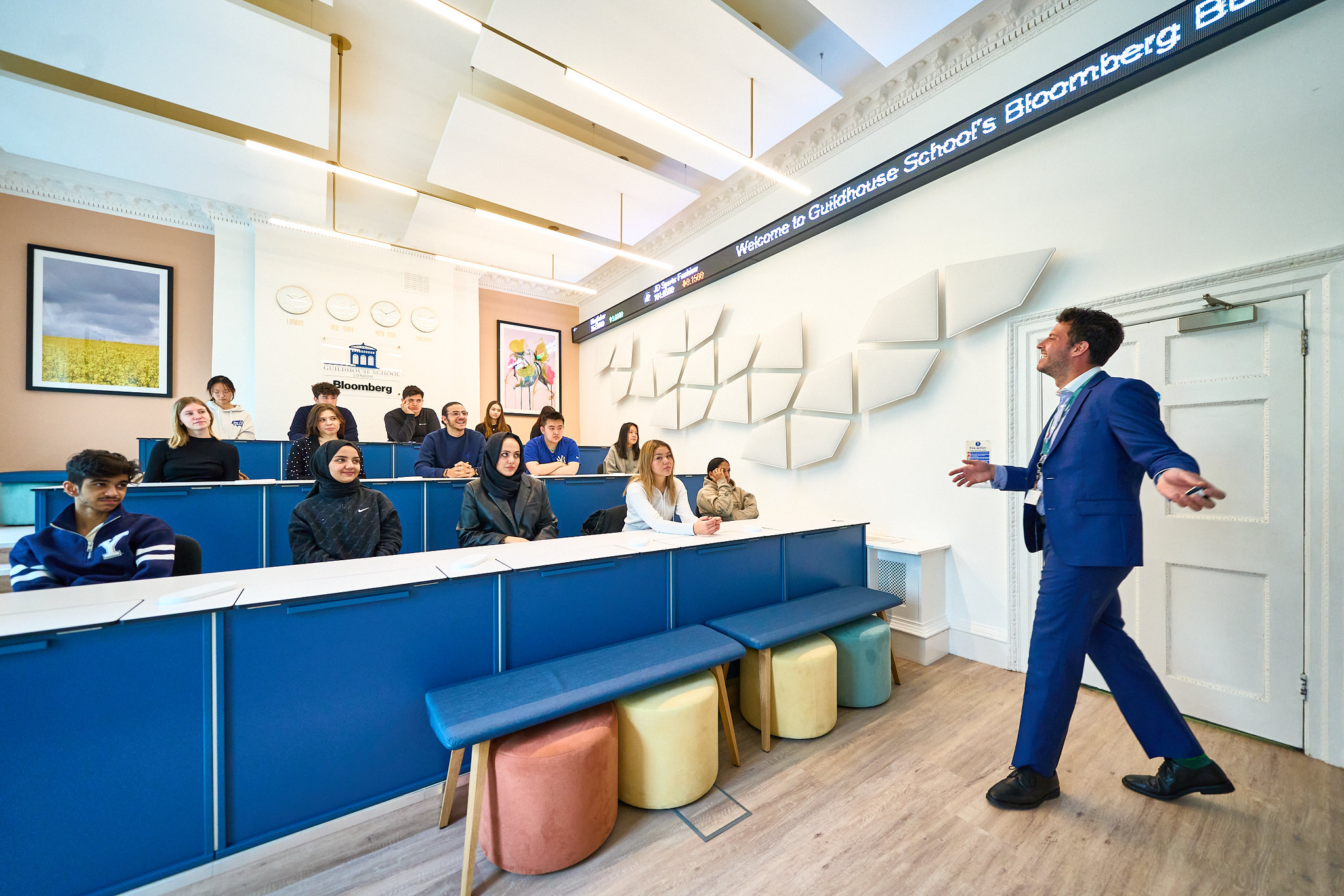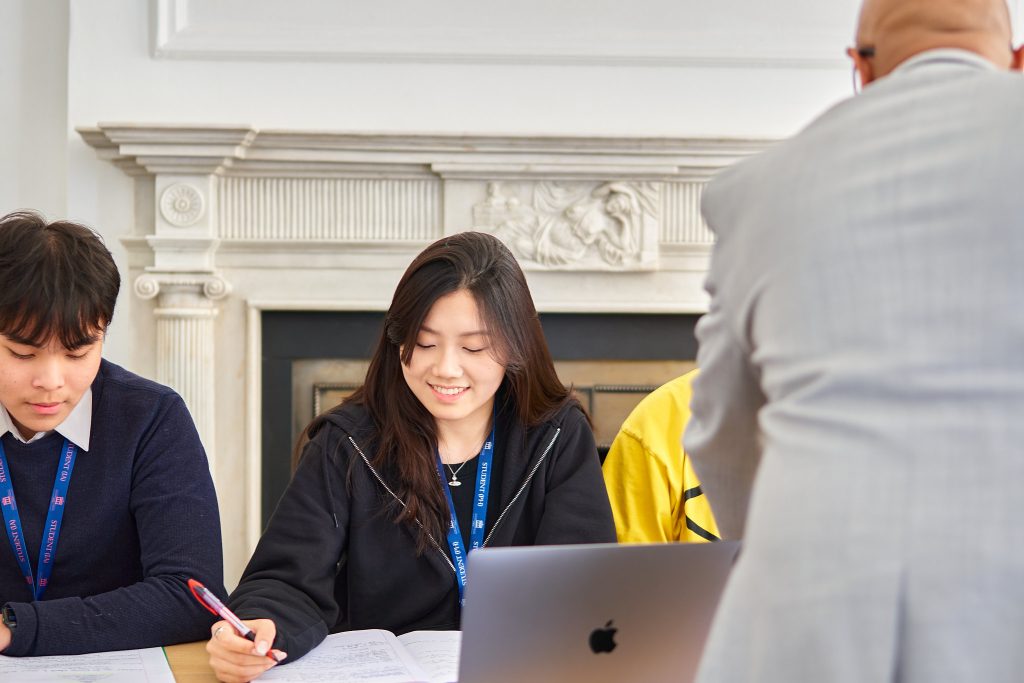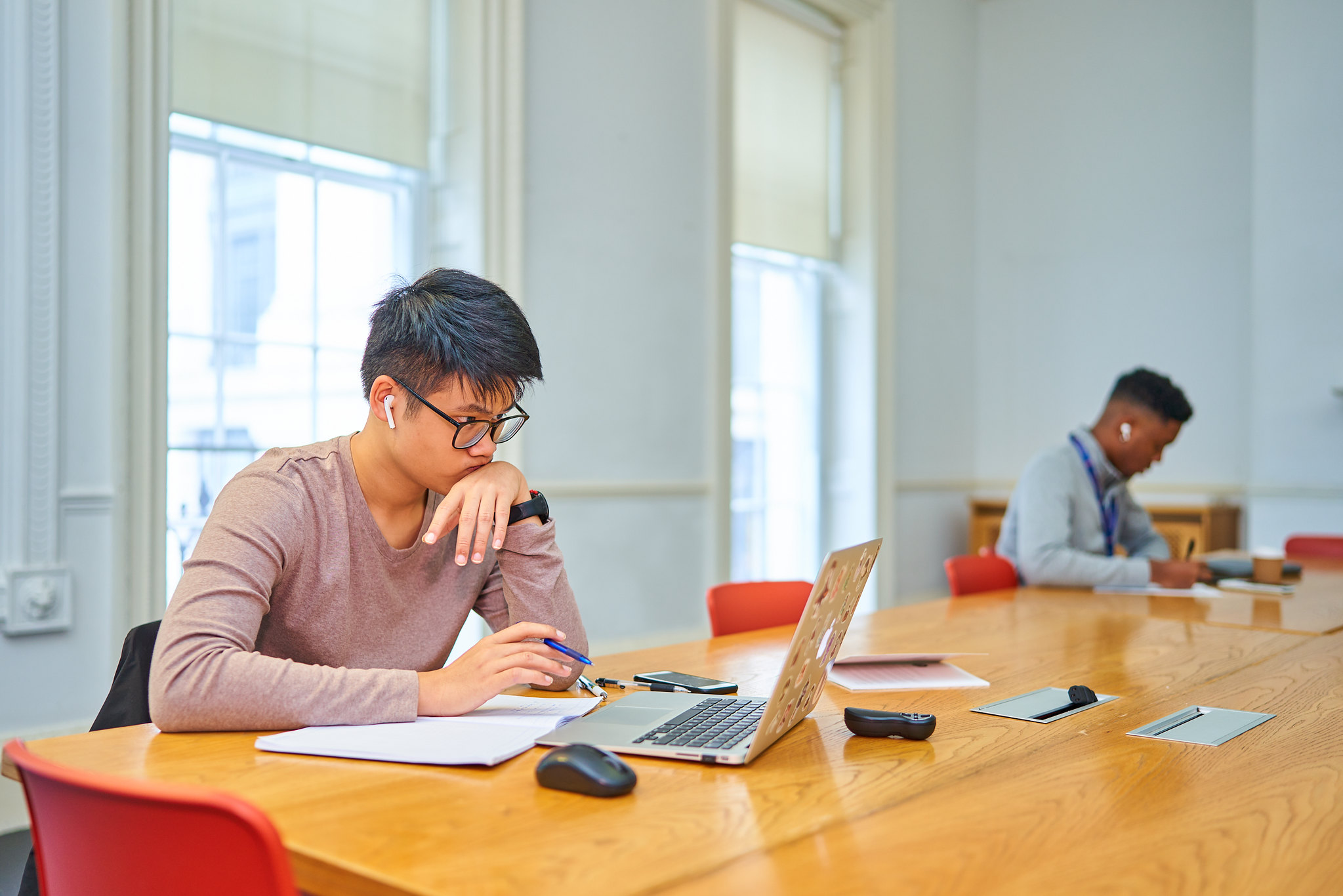Preparation for mock exams is currently well underway at Guildhouse School London. Mocks are one of the main events in a young persons’ educational journey. They are a rite of passage for those studying and living in the UK and play a vital role in helping students prepare themselves to face their final exams at the end of the school year.
The hard work our students are putting in to prepare for their mock exams is clear and visible all around Guildhouse School. They are focussed and driven to do their best in readiness for the summer exam season. And yet, mock exams are not terminal and, in fact, another opportunity to learn from mistakes, in line with our philosophy centred around developing reflective and thoughtful people
Ben Dolbear, Deputy Headteacher

Here's our guide for everything you need to know about Mock Exams at Guildhouse School...
What is a mock exam?
A mock exam is just like any real exam that students take. It is made up of exam questions and previous official exam papers. The exam conditions used in a mock exam aim to replicate the conditions of an official exam, which makes sure students are aware of what to expect and what is expected when facing their official exams.
Why are mock exams important?
Mock exams are a chance for students to experience what official exam procedure will feel like when the time comes. Not only are mocks a chance to prepare for future exams, but their results are also a great tool for informing students about gaps in their knowledge, letting them know what they should spend time revising in the lead up to their official exams.
What’s it like to take a mock exam?
Mock exams feel like the final exam. They are sat under exam conditions, this means invigilators are present and the students are sat in individual, forward-facing desks, completing the papers under timed conditions. Often, test papers from recent years are used during mocks as their mark schemes are still available on secure areas of exam boards websites. After the mocks it can be useful for students to look through the mark scheme to see examples of best practice answers.

Do results from mock exams help with university applications in the UK?
Valuable data is provided by mock exams and alongside other data, it is used to inform the Teacher Predicted Grades students receive prior to their final exam. These grades are the basis upon which students use to convey a sense of their capabilities when initially applying to university.
What happens after mock exams are finished?
Papers are marked and students are provided with scores, percentages and grades using the relevant mark scheme. The feedback students get can be written, verbal or both as teachers are always available to talk through their strengths and weakness during the exam process. Outcomes can be RAG-rated to provide a starting point for revision for the final, external exams.

What do students find difficult about mock exams?
Teachers have to ensure that students have covered the relevant content by the time the mocks approach. The Exams Officer faces the challenge of timetabling the exams in exam halls, as well as allocating invigilators. Students may not have experienced taking such a high number of exams in such a tight time-frame. This this can put pressure on them and make them feel a bit nervous. They may need to be taught exam etiquette. It is always best to face these challenges during the mock, so they don’t catch students of guard during the final exams.
Three top tips for mock exams
Students who are taking their mock exams should:
- Create and use an exam timetable, with scheduled breaks
- Anticipate the experience with a positive mind-set – it’s a chance for you to show off your knowledge!
- Be equipped, that includes having water and snacks (for maintaining healthy level of hydration and energy during the exam)



